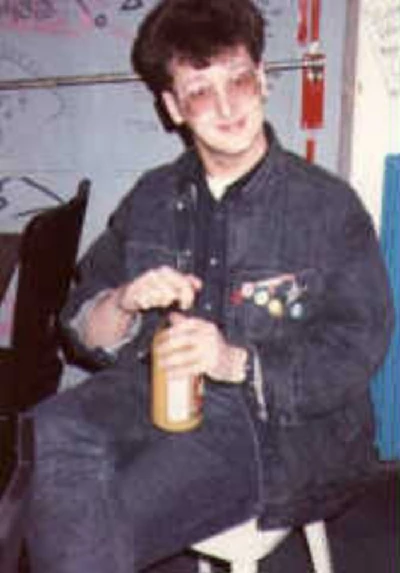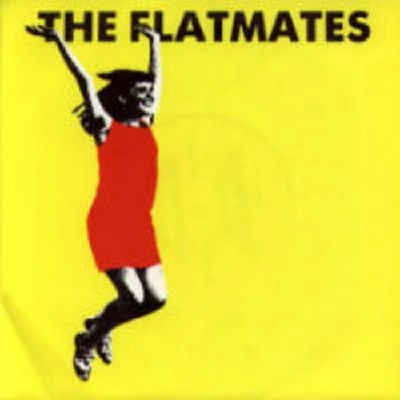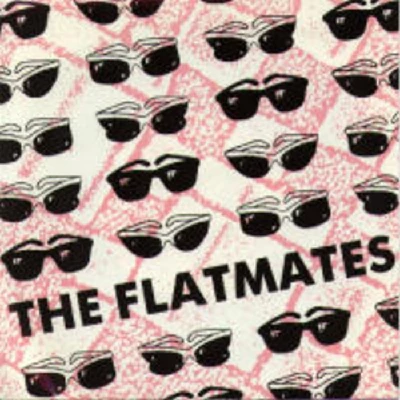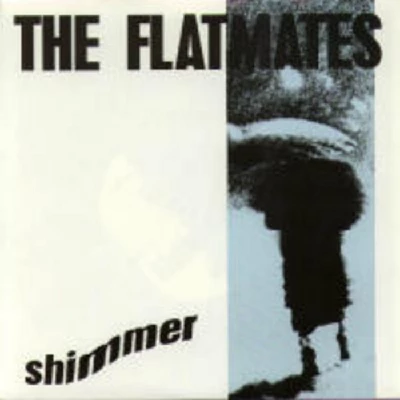Miscellaneous
-
Interview
published: 22 /
3 /
2002

The Subway Organiszation label was one of the great indiepop labels of 80's. It owner Martin Whitehead, who was also the guitarist with the band the Flatmates, talks to Tommy Gunnarsson about its spectacular rise and fall
Article
He’s the man behind the great label Subway Organization, that during the mid-80’s gave us bands like the Soup Dragons and Choo Choo Train. He is also the guy who played the guitar in the Flatmates. I think that this is more than enough to justify an interview, so I contacted Martin Whitehead and asked him some questions.
The idea to form his own label came to him after he got in contact with many new and unsigned bands while putting together a fanzine called 'Underground Romance', later only 'Underground.
"I was a fan of labels as much as a fan of bands. Frequently labels would go on being good for longer than some of the bands could manage to be good. I liked the style and identity of labels like early Stiff Records and Two Tone, but before that labels like Motown and Stax had built a reputation for a style of music. The majors of course just put out anything, but I always thought it great how you could just tune into a label and know you were probably going to like pretty much anything it put out. My motivation was just the same as when you make up tapes for friends. You know a really great song and want your friends to hear it. Perhaps my ambition was a little bigger - I wanted the WORLD to hear these songs>"
He got the name for this label from his fanzine.
"I wanted something that seemed parallel to The Underground and sounded a bit "punk" and didn't want to call it 'Blahdeblahdeblah Records'. For a very short while it was going to be 'What Wonderful Records', but that idea just seemed a little too cheesy, even if it was quite funny to start with.
He managed the label all on his own, but got some help from Sarah Fletcher (of the Flatmates) with answering letters and to fold and pack records. But all the decisions and debts were Martin’s. He didn't find it hard to find bands.
"Most of them were through demos sent to me, either through the fanzine or once the label had started. The Fastbacks I'd long been a fan of and licensed their albums from their American label. Rodney Allen and The Groove Farm both played gigs around Bristol and so I'd seen them live a couple of times. I'd bought the Buba and The Shop Assistants single and asked them to record for my new label. Sometimes I just read reviews and either went to see the band or wrote asking to hear stuff."
What did you look for in a band?
"Different things in different bands, and different bands were signed for different reasons. The main thing was to find something a little out of the ordinary. Every week I would receive 10 or more demos, and so many of them just sounded like everything else. Bands like The Soup Dragons, Shop Assistants, Razorcuts, Chesterfields etc. perhaps sound rather generic "indie" now, but in 1985 and 1986 there wasn't anything with that kind of freshness and they sounded very different. Rodney was this 16 year old solo guitarist who just stood onstage by himself singing songs about growing up in his village. Choo Choo Train had fantastic songs, and unlike most British indie bands of the time could actually play their instruments really well"
The early sleeves, that were just the fold-over kind, were made by a guy called Billy Moxey in Glasgow, who also did the early Creation sleeves, and he had his own printing press in a garden shed. But a lot of the other Subway sleeves were designed by the Terrible Hildas, who were Simon Barber of the Chesterfields and his girlfriend. Martin did one or two on his own, and bands like the Shop Assistants, the Soup Dragons and Razorcuts did they own. The later sleeves were made by some boys that studied art.
If you look at the Subway discography, you will notice that there are a couple of records that were never released, but still they are listed. Why is that ?
" 'Subway2', The Soup Dragons ep was cut and pressed, but the printer (not Billy) damaged the artwork before printing it. Sean Dickson of the Soup Dragons changed his mind about the quality of the cut, then changed his mind about the songs they'd recorded. In the end I agreed to let them record "Whole Wide World" if I could give Subway2 away with the Underground fanzine. When I finished the fanzine and printed 2000 copies, Sean got his lawyers to claim that I had no permission to press the record. In the end, most of the copies of the EP got thrown away, and Sean kept the royalties that I'd paid him for pressing it. 'Suborg11' was to be The Springfields album. Ric and Paul took the money to record the album, but never delivered the tapes. The songs recorded for the Subway album came out on Summershine, Bus Stop, and Sarah Records.
So why did Subway fold?
"I owed Revolver £25,000 in expenses and they wouldn't pay to press up any more records, so I had to stop!"
Do you ever think that you would like to start a new label ?
"Yes, frequently. I wish that me, now, could team up with me, then. Then I had the energy and knowledge of the underground music scene. Now I have experience and legal and business knowledge. I sometimes think about starting a label again just to put out the occasional unsigned artist I come across, but at the moment I'm just a bit short of time and money."
Subway released their last record, the single 'Love In The Emptiness' by the Charlottes, in 1990. But already in 1989 Martin started working for the previously mentioned Revolver, where he stayed until 1992, when he went to work with Fire Records in London. In 1993 he went back to school to study law, and he qualified as a solicitor in 1999. After qualifying he worked in the music business before joining the BBC about a year ago.
"I am a lawyer for the BBC World Service doing anything and everything that is needed! Radio got me into pop music and it feels fitting that things have come full circle and I've ended up working in radio. I occasionally see Joe Strummer from The Clash as he has a radio show on the World Service, playing world music. I'm also proud to be playing my part in making sure that John Peel's show can be heard all around the World, if only for half an hour each week."
Looking back, which is your favourite Subway release?
"I really couldn't pick one. I'd always change my mind and think of a better one and it would probably be better for another reason. I think the Shop Assistants EP deserves a mention of course, The Razorcuts 'Big Pink Cake' really worked well as a single and I liked the fact that it got played a lot in gay clubs in San Francisco at the time, that was really different territory for "indie" to venture into! Any thing by the Clouds is worth mentioning, simply for the perserverance required to get their records out. The Chesterfields 'Kettle' album worked well as an album. The Flatmates 'Shimmer'was the only indie charts number one the label had, while the two Choo Choo Train singles that Subway put out were great records. The Fastbacks are simply fantastic and the Charlottes probably saved me from losing my house! All the records I put out are like children to me - how can I pick one???!!!"
Martin also tells me that he knew Matt and Clare of Sarah Records quite well, as they were both in Bristol at the same time. They'd sometimes criticise the records Martin put out and he would sometimes comment on the uneccesary tweeness of Sarah.
"When I worked at Revolver I looked after the production and manufacturing of Sarah, and on Sarah 50, the boardgame, there's even a square where you have to go to Revolver's warehouse to pick the test pressings up from me. We were into different music and the ideas behind our labels were quite different. My plan was for the kids with no money to gate crash the charts and kick up a din, and they wanted to completely ignore the music business, but we always got on fine and would always stop and chat. I was always into music as a fan, and like any other fan had labels that I liked. Living in Bristol we were quite outside the London music business, so I never really got to meet people running other labels."
Some people thinks that the Subway label was the one who started the whole C86 movement. What do you think about that?
"Well that's very flattering, but there were lots of other labels represented on the NME C86 cassette which started it all too! As for that mid 80's explosion of pop, the Jesus and Mary Chain were out there before Subway, as were The Pastels, Television Personalities, Creation Records, The June Brides. Also in the early 80's bands were either very serious goth bands who were into dressing up, or left wing political bands like the Redskins and even Billy Bragg. Things like The Smiths and the Velvet Underground's "VU" reissue were all influential in the rise of bands playing pop music. Myself and others who were into C86 before the movement existed were into punk bands like the Ramones and lots of 60's girl groups like the Ronettes (The Flatmates 'So In Love With You' steals its drumbeat from them), the Shangri Las (The Pastels covered 'Past Present and Futur'") and the Crystals."
"But most of all, C86 was a cassette given away by the NME!"
"Nobody that I knew ever used the C86 name at the time. It seemed to get applied some years later. We called ourselves indie, punk pop, jangly pop, and if you wanted to be really dismissive about a band - indie pop. Bands that wore anoraks were called Cuties. The NME even tried at one time to call people into that kind of indie "Start-Rite Kids" after the brand of childrens shoes. The C86 tape itself was so mixed in style that no one at the time would have understood what kind of music was being referred to. Now it's applied to the pop bands on C86 like the Soup Dragons and Primal Scream, but bands like Stump and Bogshed were also on there. I couldn't imagine many bands less like Primal Scream than Bogshed - or the Shrubs."
"C86 was just a small part of that movement, although it was important because it meant that the NME had acknowledged that there was something happening in indie-land, but we didn't really draw any inspiration from it as such. People like me and Rocker (of The Flatmates) were putting on gigs in Bristol. The Pastels and their mates were doing the same in Glasgow, Alan McGee was running The Living Room in London. Jeff Barrett (later of Creation and Heavenly Records) was doing the same in Plymouth. We were more influenced by Andy Warhol and The Velvet Underground and their Exploding Plastic Inevitable Club, making gigs "happenings" - that's what Matt and Clare and the rest of the people that run the EEC Punk Rock Mountain were into - making badges or stickers for the night, giving away cakes, projecting home made films over the stage.We were listening to the Byrds and Big Star, watching 60's kids TV like 'Captain Scarlet', 'Doctor Who' and Star Trek and rediscovering the more obscure punk/pop stuff from 1977. Each of the posters I did for The Mission Club and The Bunker was intended as an artwork, not just a poster for a gig. We had little jokes hidden in the design that referred to other bands or gigs or fanzines. It was all about making fanzines visually exciting rather than wordy, worthy and dull."
"Calling that movement C86 gives far too much credit to the NME. They just bunged a load of bands onto a tape - they weren't the ones who were out there making these gigs happen. Me, Geoff Barrett and Alan McGee were putting the same bands on, on following nights. Wednesday was Plymouth, Thursday was Bristol then off to London on Friday. There was a real sense of working together, getting similar bands to be your support band if you got a good gig. It was a really creative grass roots movement that had a load of momentum going before the NME even noticed it. To name it after the NME's tape is to completely ignore what that scene was all about and deny the people who were driving the scene the credit they deserve"
Finally, I had to ask him about why Hue Williams of the Pooh Sticks mentions Martin in the lyrics for the indiepop classic 'On Tape'?
"The mention in 'On Tape' comes from the Soup Dragons and their messing about over the EP that they wanted given away with Underground fanzine. Someone wrote a letter to the NME claiming they'd sent me money for a fanzine I'd advertised with the Soup Dragons EP in it and that they'd never received the fanzine and record. The fanzine was never advertised because of the nonsense with the Soup Dragons and anyway - who "advertises" fanzines??? The person who wrote the letter had never even sent me money anyway, not that a matter of libel or journalistic accuracy has ever been of concern to the NME. Hue Pooh was referring to the NME letter and the unreleased Ep as being another rarity 'On Tape.'"
Label Articles:-
Subway (1)
Picture Gallery:-


